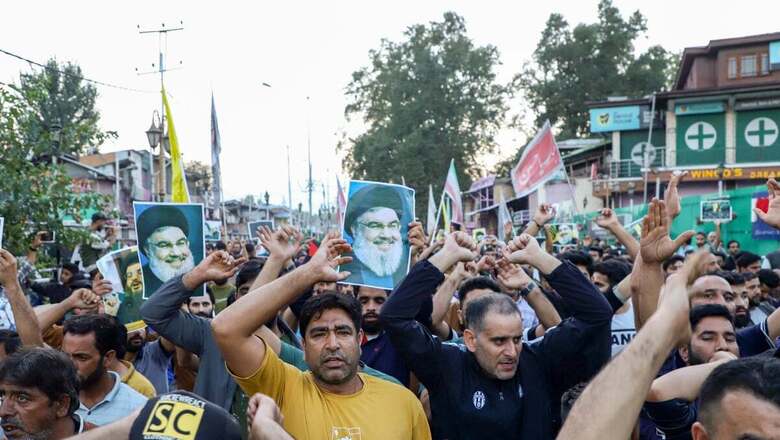
views
The massive protests in Jammu and Kashmir against the killing of Hezbollah chief Hassan Nasrallah by Israel have raised concerns among Central Intelligence agencies. A senior official stated that in a latest analysis, the protests have been termed ‘organic,’ as there is no input of these protests being fueled by ‘outsiders.’ The protests have been organised by local Shia groups, primarily consisting of youth who are upset about the killing of Hezbollah chief Nasrallah.
Officials from various intelligence agencies have said that for the next few hours, no protests will be allowed due to the sensitivity of the voting in the UT. Areas like Kargil and Budgam, which previously saw protests against Israel’s operation that eliminated Nasrallah, are now under heavy security deployment.
According to a senior intelligence official, there is general threat from these protests, and agencies are monitoring the situation. “These protests are organic in nature and involve locals from the Shia community. Many of them travel to Iran and Iraq every year, especially during Muharram, and view Nasrallah as their key leader. Community leaders have been asked not to organise any protests in light of the voting in J&K and may not be allowed for next few days. So far, no support or involvement from outside sources has been identified in organising these protests,” a senior government official deployed in J&K said on the condition of anonymity.
While security forces have acknowledged that miscreants may attempt to exploit these protests to create a law and order situation in J&K, sufficient deployment has been arranged to handle any issues, a police official stated.
Importantly, central agencies are concerned about local connections between Shia individuals and Hezbollah, which could be exploited to radicalise youth. They do not dismiss the possibility that individuals may be in contact with groups in Iran, posing future challenges. Meanwhile, various social media platforms and groups are under scrutiny.
“We’ve noticed inflammatory and sectarian posts being shared on social media, threatening communal harmony. We urge everyone to refrain from posting or engaging in such divisive content,” the cyber police posted on X.
Warning of strict action against offenders, they added, “Any individual found posting or sharing sectarian, inflammatory, or provocative content will face strict legal action under relevant sections of the law. Let’s work together to maintain the unity and tranquillity of Kashmir.”














Comments
0 comment